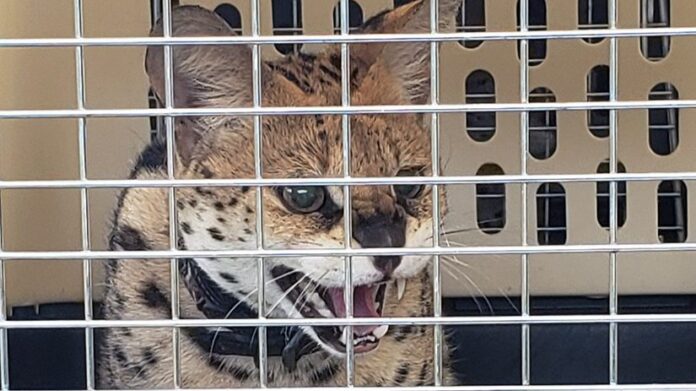British Columbia is moving to ban all exotic cats in the province.
The province said on Tuesday, June 8, it’s proposing regulation changes that would ban the breeding, sale and future ownership of exotic cat species.
That includes servals, caracals, ocelots, and all other non-native and non-domestic cat species.
B.C.’s Ministry of Water, Land and Resource Stewardship noted that lions, tigers, jaguars, leopards and cheetahs are already regulated in B.C., but other exotic cat species are not.
It said there have long been public safety and environmental concerns from animal welfare organizations and wildlife experts around the ownership of such cats.
“This change would provide consistent and enforceable guidelines to strengthen protections for communities, native wildlife, ecosystems, pets and exotic cats themselves,” said the ministry.
Current owners would be allowed to keep their exotic cats for the remainder of the animal’s life, provided they apply for a free permit and meet basic care and safety requirements. However, breeding, selling or acquiring new animals from these species would no longer be permitted.
Under the Wildlife Act, the B.C. government can designate certain animals as “controlled alien species” in order to regulate them, ranging from wild cats to monkeys and pythons.
The B.C. government’s website page on controlled alien species said people charged with a first offence of breeding or releasing a controlled species can face fines of up to $250,000 and possible jail time. A first offence of possessing a controlled species without a permit can lead to fines of up to $100,000 and possible jail time.
The B.C. SPCA has previously raised concerns about servals being kept as pets. It said servals are wild cats native to many parts of Africa and tend to have poor quality of life when kept as pets. The organization said they can also pose a threat to people and other pets in the home.
In 2019, the organization rescued 13 servals from breeder near Kamloops, stating the animals were living in “horrific conditions.” It said the animals received specialized medical care and were eventually transferred to sanctuaries in the U.S. – noting there are no accredited sanctuaries in Canada for servals.







